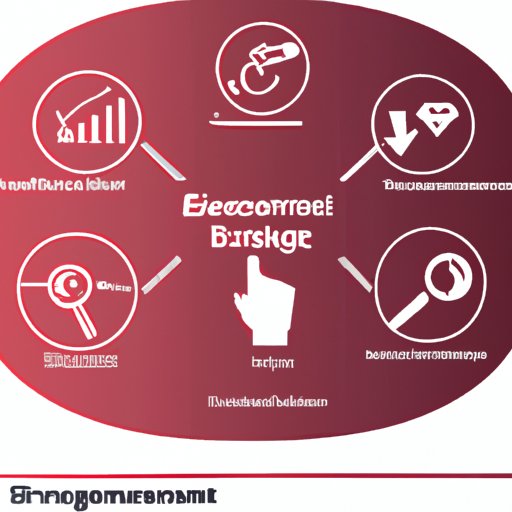Introduction
Evidence-based decision making is a process by which decisions are made based on the best available evidence. This method of decision making relies on data and research to identify the most appropriate course of action for any given situation. By utilizing evidence-based decision making, organizations can make more accurate decisions, reduce the risk of error, and ultimately improve organizational performance.
Explaining the Basics of Evidence-Based Decision Making
So, what exactly is evidence-based decision making? In short, it is a systematic approach to decision making that uses evidence from research and data to inform decisions. The goal of evidence-based decision making is to ensure that decisions are based on the best available evidence and that they lead to positive outcomes for the organization or individual.
How does evidence-based decision making work? To begin, evidence-based decision makers collect and analyze data to determine what information is relevant to the decision being made. This data is then used to develop a hypothesis or set of assumptions about the best course of action. Once the hypothesis has been developed, the decision maker tests it against the evidence to determine if it is the most appropriate course of action.
The key principles of evidence-based decision making include: gathering the best available evidence; analyzing the evidence to identify patterns and trends; developing hypotheses based on the evidence; testing the hypotheses against the evidence; and making decisions based on the results of the analysis.
Examining the Benefits of Evidence-Based Decision Making
Evidence-based decision making has numerous benefits for organizations and individuals. One of the primary benefits is improved accuracy. By relying on evidence to inform decisions, decision makers can be more confident that their decisions will lead to the desired outcome. Additionally, evidence-based decision making helps to ensure that decisions are better informed, since all relevant evidence is taken into consideration.
Another benefit of evidence-based decision making is increased confidence in decisions. By relying on evidence as the basis for decisions, decision makers can be more confident that their decisions are based on sound reasoning and will lead to positive outcomes. Furthermore, evidence-based decision making reduces the risk of error, since all relevant evidence is taken into account when making decisions.
Investigating Examples of Evidence-Based Decision Making
Evidence-based decision making is used in a variety of settings, including clinical settings, business operations, and government policymaking. In clinical settings, evidence-based decision making is often used to guide the diagnosis and treatment of patients. In business operations, evidence-based decision making is used to inform decisions regarding product development, marketing strategies, and other operational decisions. Finally, in government policymaking, evidence-based decision making is used to inform decisions about public policies.
Analyzing the Challenges in Implementing Evidence-Based Decision Making
While evidence-based decision making has numerous benefits, there are also certain challenges that organizations must overcome in order to successfully implement this method. For instance, collecting and understanding data can be difficult, as can determining which evidence is relevant to the decision at hand. Additionally, ensuring objectivity can be challenging, as biases can influence the interpretation of evidence.
Exploring the Impact of Evidence-Based Decision Making on Organizational Performance
When implemented successfully, evidence-based decision making can have a significant impact on organizational performance. By relying on evidence to inform decisions, organizations can improve efficiency and increase productivity. Furthermore, evidence-based decision making can lead to enhanced customer satisfaction, as customers are more likely to be satisfied with decisions that are based on solid evidence.
Conclusion
In conclusion, evidence-based decision making is a systematic approach to decision making that uses evidence from research and data to inform decisions. This method of decision making has numerous benefits, such as improved accuracy, better informed decisions, increased confidence in decisions, and reduced risk of error. Additionally, evidence-based decision making can have a significant impact on organizational performance, leading to improved efficiency, increased productivity, and enhanced customer satisfaction. However, there are certain challenges that organizations must overcome in order to successfully implement this method, such as collecting and understanding data, determining relevant evidence, and ensuring objectivity.
(Note: Is this article not meeting your expectations? Do you have knowledge or insights to share? Unlock new opportunities and expand your reach by joining our authors team. Click Registration to join us and share your expertise with our readers.)
